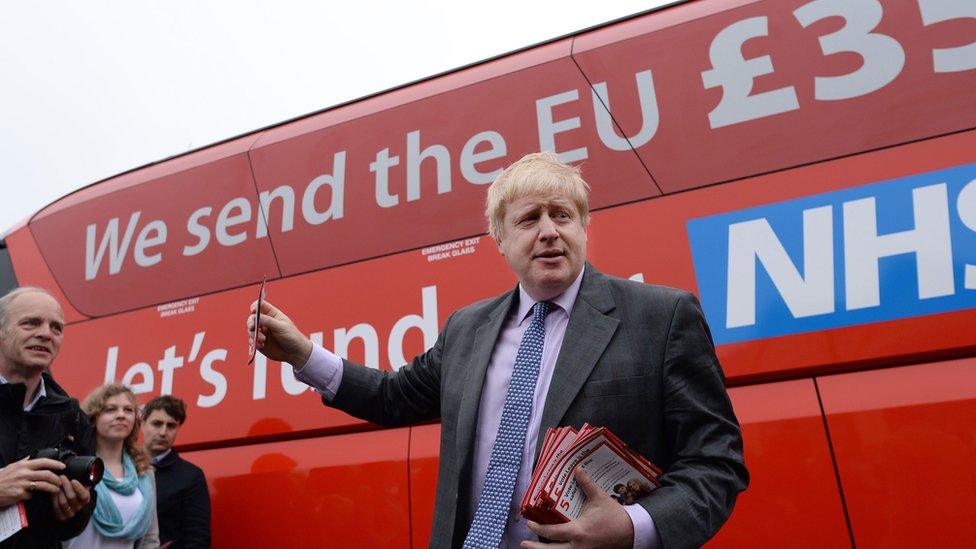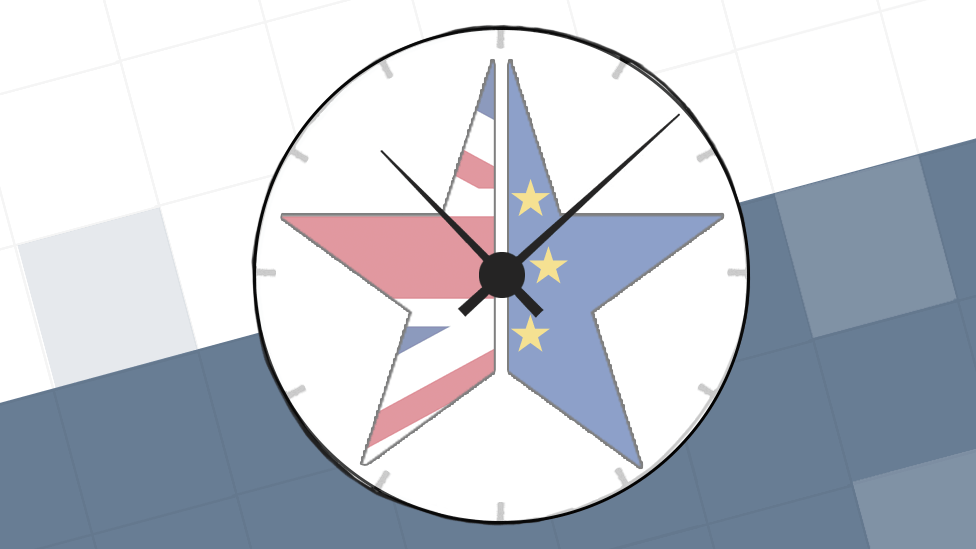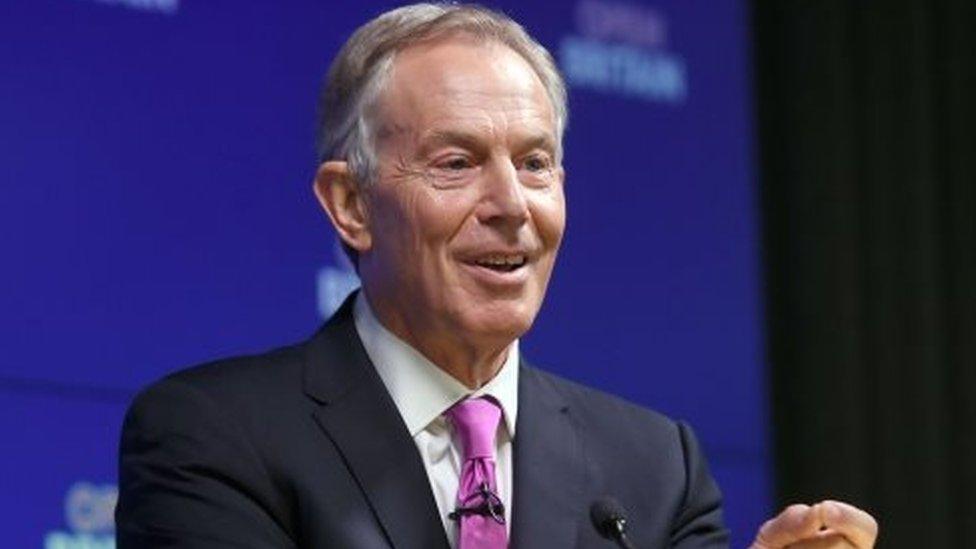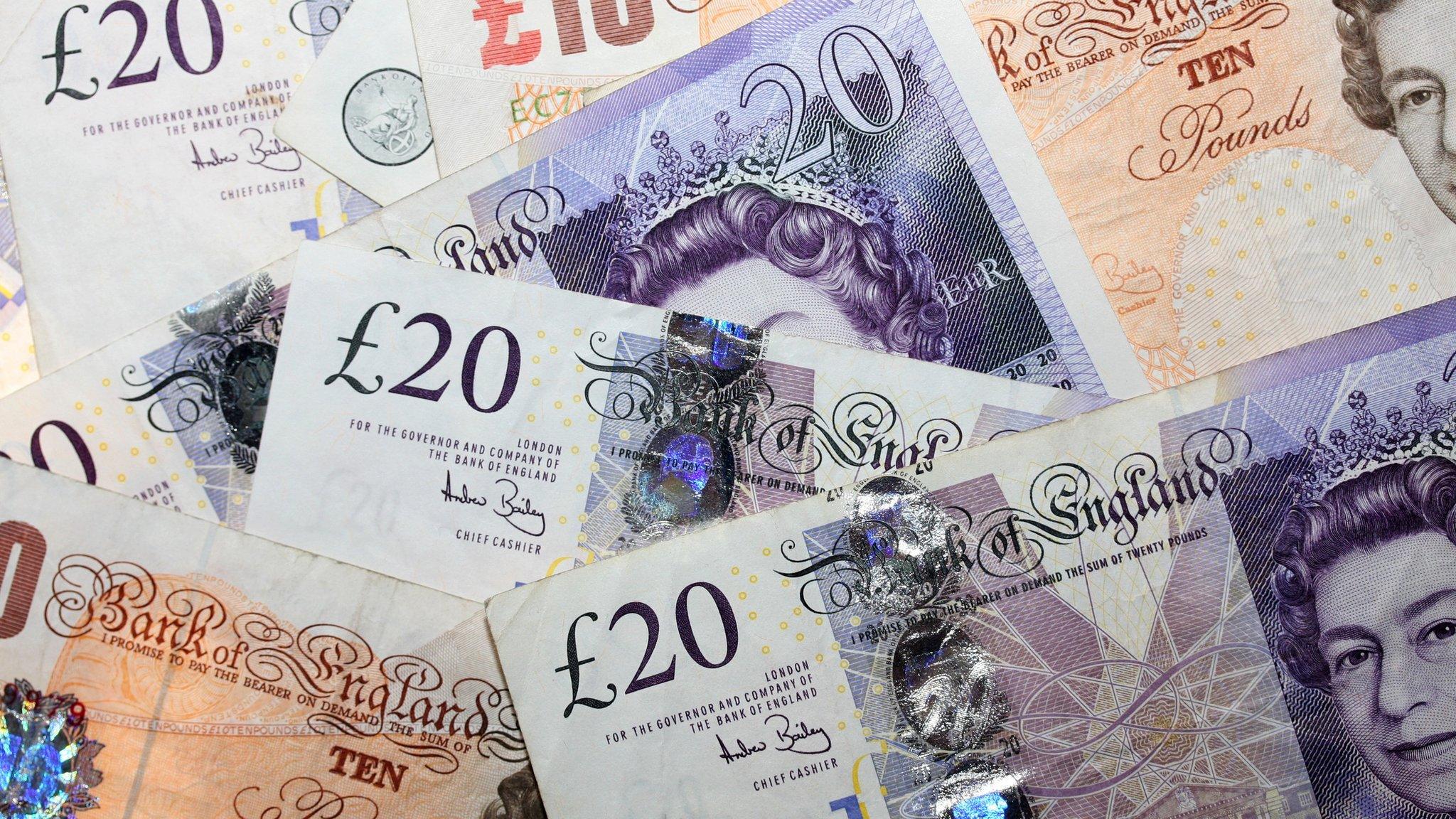Does the Brexit dividend actually exist?
- Published

Voters were promised an additional £350m a week to fund the NHS
As was crystal clear with a focus group in Coventry last night, for many voters, Brexit was a demand for something else, a response to big promises made by politicians.
With only a year to go, and the government's main achievement so far being establishing a grace period that will pretty much keep us in the EU for another couple of years, I can't help using the phrase that haunted the prime minister in the election: "Nothing has changed."
And nothing will change any time soon either. But the argument over how to keep perhaps the biggest of those promises is alive and kicking.
Without mentioning the bus (yes, that bus), the boldest promise in the referendum that sticks in people's minds was to provide more money for the NHS.
The beady-eyed among you will remember that already this week, the prime minister has made a significant move on the health service, accepting Jeremy Hunt's demands for a longer-term funding deal and, more cash.
What the the government has not however been clear about yet, is where that money will come from. Yes, that money that was dangled in front of voters in the referendum. As it happens the current planned funding for the health service already amounts to an extra £100m per week in the coming years, in nominal terms at least.
But ministers are now publicly committed to a lot more than that in the years to come.
Will this be, could this be, the so called Brexit dividend? It's no secret that the foreign secretary, and others who argued for us to leave the EU believe that more cash for the NHS should be found and labelled as such. He's raised it plenty of times publicly, and continues to do so in private.
What's more intriguing is where the balance of the cabinet might be moving. Whispers suggest that the treasury takes what has been described as a very purist view.
All the number crunching done so far of the world outside the EU suggests that the economy will grow more slowly after Brexit than it otherwise would have done. Therefore it makes no sense to claim that you can keep the promise of more cash from the NHS because fundamentally the country is expected, if you believe those numbers, to be less well off than it would have been otherwise.
On those terms therefore, you can't claim a "dividend" from leaving, because the money we will save when we stop paying our membership dues is less than what we might lose overall.
It therefore makes economists fume over their calculators when a "dividend" is discussed. But before any of them feel like raging over what I'm about to write, there is a very different way of calculating the "dividend" - a political one.
Under this argument, the economy might grow more slowly but it will still grow. And those pesky forecasts? Well, they turn out to be wrong most of the time. So, if, as the government now accepts, the NHS needs much more money over a long period of time, why not label the money we'll stop paying to the EU as such, the nine billion or so per year, and put it towards the NHS.
That alone does not provide the answer to all the NHS's problems. But it might go some way.
Politically, and forget about the sums if you can, the government does seem to be moving towards the notion of the dividend.
Although the prime minister was reluctant to use the phrase when we spoke to her this morning, she did very clearly say that there would be large amounts of money coming back from the EU that would go towards the NHS.
And I'm told that privately she does favour that argument rather than Number 11's more "purist" view.
It's worth noting that in recent weeks, it was the argument for easing up on spending control, not just in the NHS, but in the Ministry of Defence too, that won, rather than calls to keep the purse strings tight, even after a series of what were described to me as very fraught meetings.
Perhaps as the clock ticks down towards Brexit, the prime minister will feel bold enough to use the departure as a political dividend to set a different agenda.
It is worth saying too that she also did not rule out a tax rise to pay for more health spending. The debate over the direction to go is obviously far from settled.
There is of course, absolutely nothing that's certain about the political or financial picture this time next year. I hate to think how out of kilter this blog might seem on re-reading in 12 months' time.
Some Remain Tories predict a "constitutional crisis" in October, suggesting they will fight the Brexit deal in Parliament. In contrast, one cabinet minister told me "if the establishment tried to unpick the result we'd have poll tax riots".
How could we possibly predict the passage of the next year's negotiations after what one minister described as a "year-long Brexit Hokey-Cokey - we're in, out, in, out"?
Another predicted the next year's tangle between Britain and Brussels will be "the most unpredictable and most important, but also demanding the most creativity".
In other words, no one, even those at the top of the government can really know what happens next. But the dividend, or the pain from Brexit will define the government's fortunes.
- Published17 September 2018

- Published29 March 2018

- Published29 March 2018

- Published25 November 2016

- Published30 December 2020

